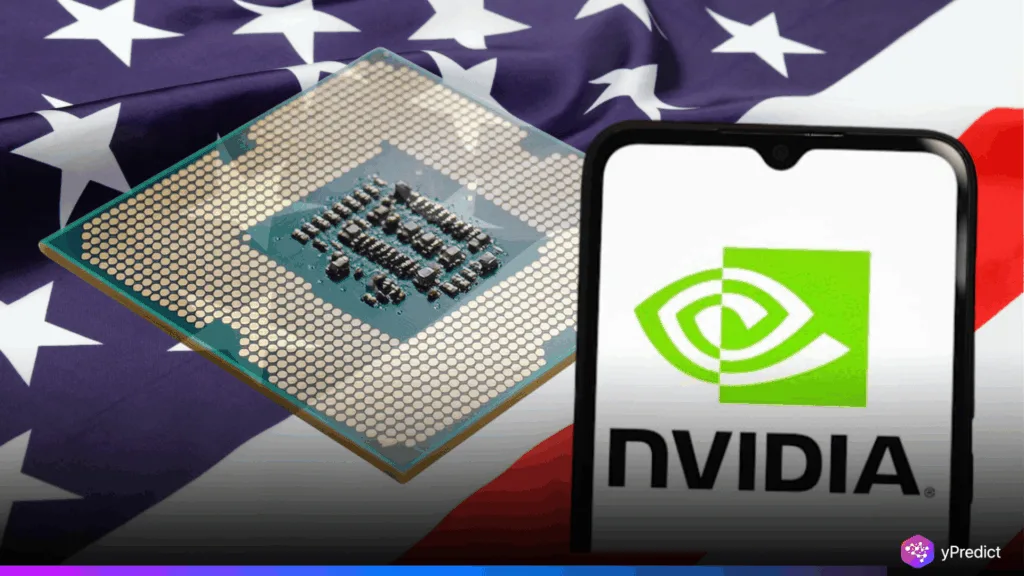
NVIDIA, Geopolitical Stakes and Export Policy
NVIDIA doesn’t like the proposed policy that hasn’t yet materialised. And that is to impose a 15% government fee on the sale of AI chips to China — chipmakers, including Nvidia, as fellow chipmaker Intel has disclosed — according to the post. These policies aim to accelerate AI chip-making and in particular, exports of the H20 series to China. The policy was established during the Trump administration, but there are no formal procedures to fill in for this. NVIDIA’s CFO, Kress, states with certainty that the revenue predictions do not take the fee into consideration. They have neither exported non-regulated H20 chips.

Image: X Post by @StockTickerZone
NVIDIA Faces Legal and Competitive Risks
In its SEC filing, NVIDIA stated that the government’s unauthorised request for the company to have to reverse the previously posted revenue would put it in an awkward position. These involve litigation, increased costs, and harm to competitiveness. Especially in the area of foreign AI hardware. This is despite the claims to the contrary that some drunken offerings from foreign firms are making.
Trade lawyers said the payment structure resembles an illegal export tax that could push the United States further out of compliance. It is, therefore, perhaps the most distressing sign of the attempt to circumvent national regulators which is the preservation of national security. This is asserted by other critics, and even by some of the regulators who served in the past.
Strategic Impact on NVIDIA’s AI Business
NVIDIA is still geopolitically sensitive as they are negotiating exports. They have previously lost, as unaccounted, high H20 inventory, which ranged between 4.5 and 5.5 billion dollars. Their employees have members work on negotiating the licensure for the Blackwell chips which are more advanced. However, the AI proprietary revenue streams and the encompassing strategy seem opaque.
They caution that the charge may reduce cross margins in other technologies by 15 percentage points and subsequently establish, almost untold, regulatory dangers, which are set to arise.
To Conclude
NVIDIA has stated the possibility of unsystematic, opaque rules on the 15% fee on AI chip sales to China causing complex legal issues. It also diminishes revenues, results in unfavourable profit margins, and results in the loss of strategic advantages. There are concerns about AI chips concerning global technology supremacy. And, the absence of legal guidelines continues to make the region’s market access challenging. Analysts and investors have to follow legal developments and shifts in trade policies very closely to determine the actual influence on NVIDIA’s AI business predictions.






